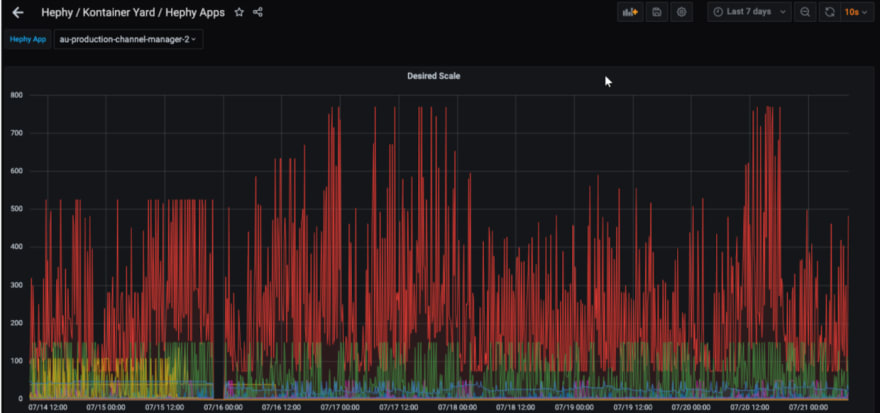By Engine yard
A NoOps platform can be a benefit to application development teams and address challenges around improving productivity and operational agility.
Like nirvana, world peace, or a free lunch, NoOps is an ideal. But unlike those, NoOps is well within reach. According to Forrester Research, who originated the term NoOps, NoOps means application developers don't need to worry about infrastructure provisioning and can just focus on developing apps. It promises faster, frictionless app development and deployment, along with improved productivity and agility for developers. An IT environment becomes automated and abstracted to the point that development teams no longer need a dedicated operations team to manage software.
As a heightened iteration of DevOps, NoOps automates the provisioning, monitoring, and optimization of apps, thus minimizing the manual work required for the development team to get it all up and running. It means that development teams can better orient their resources towards higher-value tasks like coding.
A NoOps platform like Engine Yard is the future of development productivity and can help streamline development and operations while improving application performance and accelerating time to market.
Challenges and How NoOps Provides Opportunities
The move towards NoOps evolved in response to many of the challenges resource-strapped development teams face every day.
• Challenge #1: Application developers need to focus on coding and not get bogged down with operations.
In a 2019 Gitlab Survey, 27% of developers reported deploying to production is one of the biggest sources of delay in delivering apps.
The reality is most developers would much rather spend their time coding than managing operations. Deploying applications to the cloud requires specialized infrastructure and database expertise, but small development teams are challenged by not having enough capital to truly support an in-house DevOps team or spend on deployment support when they go directly to Amazon Web Services.
NoOps offers a cost-effective and friction-free application deployment solution. With Engine Yard Kontainers, application deployment has never been easier. Write your code, commit your changes and just push to the Kontainers remote repository. Based on your Dockerfile, an image will be built and the containers that will run your application will be deployed.
Since all deployments are rolling, this means no downtime during deployments. Engine Yard Kontainers leverages 12-factor app principles for modern application deployment and management experience.
• Challenge #2: Infrastructure needs to be designed for speed and scale which requires specialized expertise.
While deployment is one aspect, ensuring your application scales in response to sudden surges in traffic is another. The solution used by some teams is to overprovision infrastructure to plan for such contingency scenarios. However, resource-constrained teams can’t afford to spend exorbitant amounts on infrastructure to guarantee application performance when there is a sudden surge in traffic.
Also, developers often need to scale an app in different ways: during business hours, the developers might need more power to handle the web part, but during non-business hours, the developers would want more power for generating reports.

A NoOps platform provides the automation and flexibility application developers need, bringing cost savings and dynamism to any infrastructure. Leveraging containers provides speed and agility as well as flexibility. Based on cpu, memory, or even custom business rules, you can set the auto scaling policy that makes your application ready to serve an increased number of requests, whenever this is needed. What more, as the platform monitors application performance it uses these insights to intelligently rightsize infrastructure using machine learning technologies.
• Challenge #3: Developers need to manage operations, monitor, troubleshoot, and fix issues across the app development cycle without an operations staff.
Deploying apps for the cloud is not a “set it and forget it” exercise. What do you do when something breaks in the middle of the night? How do you ensure that there is no downtime? In a NoOps environment automation can quickly help bring applications back online. This is not to say that NoOps eliminates the human-based operations team, but what’s clear is that 24/7 service matters.
A NoOps platform like Engine Yard Kontainers platform provides built-in observability and intelligent alerts to monitor your operations 24x7. It also offers centralized logging, metrics, and traceability which make it easy to identify and fix issues without any expensive downtime. The engine yard platform lives within your private and isolated account, which means that you share no resources with anyone. This is a unique feature in terms of security and compliance. Engine Yard also offers world-class 24x7 support for those middle of night emergencies as well as specialized DevOps and DBA resources to support your team.

Next Steps to NoOps
In an ideal world, NoOps automation can handle everything, eliminating the need for human operators. The reality can be more nuanced: human inputs remain a crucial factor for the success and scalability of a deployment. Also, some legacy applications may not lend themselves well to No Ops environments as they are not architected for the cloud-native world. NoOps isn’t a one-size-fits-all solution, but it can benefit small startups as well as enterprise teams by allowing them to better utilize their resources in high-value activities. NoOps can also save time and money spent on provisioning and supporting expensive infrastructure for your applications.
For more information on NoOps and how Engine Yard can help improve your development productivity and operational agility, listen to our webinar or sign up for our early preview.
PaaS, Platform as a Service, NoOps, Engine Yard, application containers, Newsletter


Top comments (0)